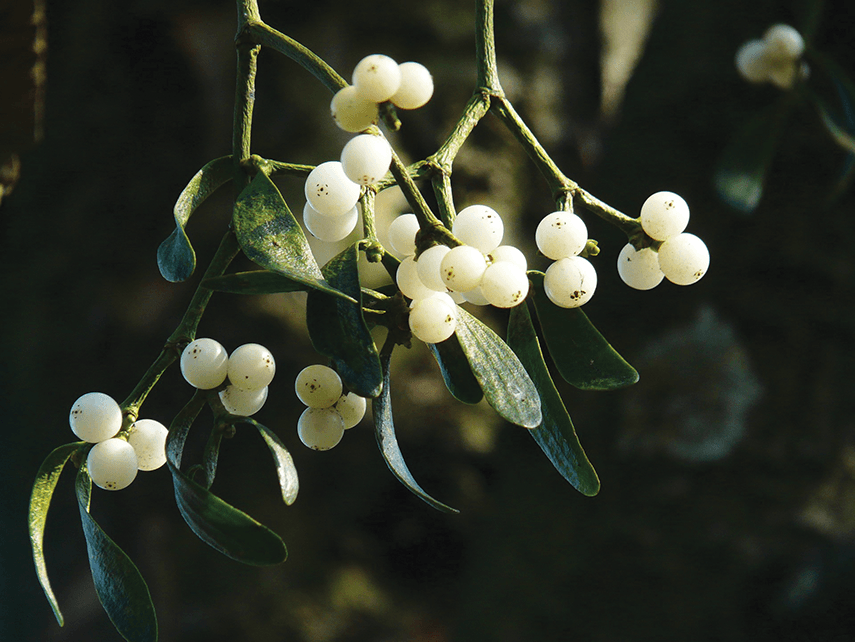Kissing under the mistletoe is a much-loved Christmas tradition, and this pretty plant’s pearlescent white berries are a welcome sign of the festive season. But how well do you really know your mistletoe?
- Mistletoe is an evergreen plant, but is best seen during the winter months (November to February) when great balls of it hang from the bare branches of host trees.
- The evergreen mistletoe is a parasite. Growing on the branches of trees, it taps into the boughs of willow, poplar and apple trees for nutrients.
- Though technically poisonous for humans to ingest, mistletoe is an important food source to a wide range of wild species.
- Birds such as mistle thrush and migratory blackcaps eat the berries, and mistletoe is also key for the life cycle of the aptly named mistletoe marble moth. The larvae overwinter in the leaves, and in late spring they pupate in a cocoon under the bark of the host tree.
- To spread from tree to tree, mistletoe offers up its berries to birds. The seeds within the berries are coated in sticky goo, so when the bird moves on and wipes its beak on the next tree, a seed or two is often left behind, glued in place.
- Mistletoe plants are dioecious – this means that plants are either male or female. The female plants grow the distinctive white berries.
- One of our most practised Christmas traditions – kissing under the mistletoe – comes from Victorian times when a boy could win a kiss from a girl for each mistletoe berry he picked from his bunch. This game probably originated from a Norse legend in which the goddess Frigga declared mistletoe a symbol of love.
- There are more than 900 species of mistletoe around the world, but the only species native to the UK is European mistletoe (Viscum album).
- If you are hoping to see mistletoe this winter, look around open habitats with plenty of light.
- Despite growing on trees, mistletoe is not generally found in woodlands – you are more likely to see it in gardens and parks.
Discover more with your local
Wildlife Trust: www.hiwwt.org.uk



